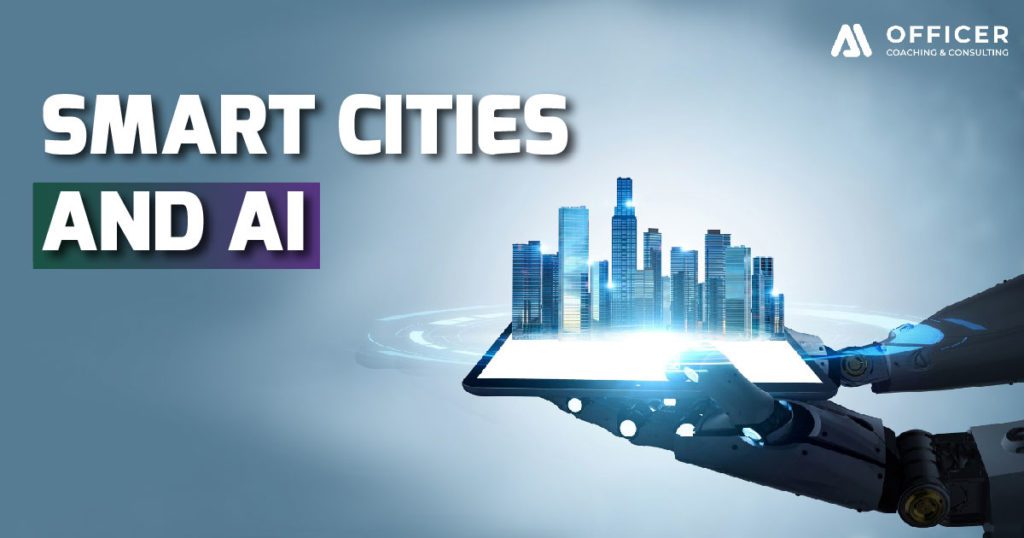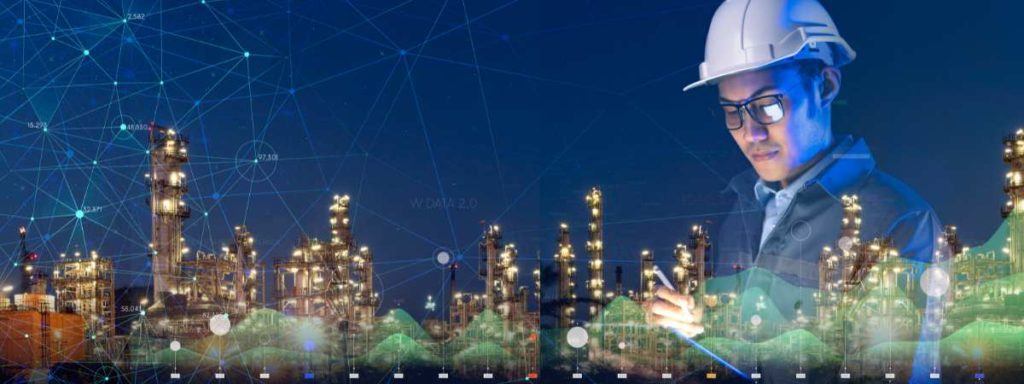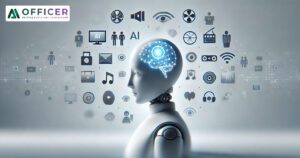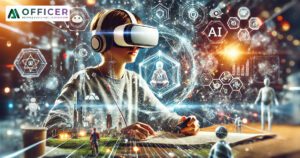
Envision this : A bright and sunny Monday Morning, you step outside your house. As you walk down the street, You notice how clean and efficient everything looks. The traffic flows smoothly, the streetlights adjust their brightness based on the natural lighting and waste management systems operate flawlessly.
You are living in a smart city, where artificial intelligence (AI) is seamlessly integrated into every aspect of urban life, creating a sustainable and harmonious environment for its residents.
In this blog, we will explore the fascinating intersection of AI and Smart Cities, showing how this powerful combination can revolutionize the way we live, work and interact in our urban landscapes.
I. The Rise of Smart Cities

- Defining Smart Cities : Smart cities refer to urban areas that leverage advanced technologies, including AI, to improve the quality of life for citizens and optimize resource usage.
- The Need for Sustainable Urban Environments : With rapid urbanization and environmental challenges, there is an urgent need to create cities that are environmentally friendly, energy-efficient and socially inclusive.
- How AI Enables Smart Cities : AI enables smart cities by analyzing massive amounts of data, optimizing systems, and making intelligent decisions to enhance various aspects of urban life.
II. Enhancing Urban Mobility

- Intelligent Traffic Management Systems : AI-based traffic management systems use real-time data and predictive algorithms to optimize traffic flow, reduce congestion and improve transportation efficiency.
- Optimized Public Transportation : AI can analyze transportation data to optimize routes, schedules, and capacity, making public transportation more efficient and convenient.
- Smart Parking Solutions : AI-powered smart parking systems help drivers locate available parking spaces, reducing traffic congestion and emissions.
III. Energy Management & Conservation

- AI-Powered Smart Grids : AI algorithms optimize energy distribution, predict demand patterns and enable efficient integration of renewable energy sources into the grid.
- Demand Response Systems : AI-based demand response systems adjust energy usage based on real-time demand, reducing peak loads and promoting energy conservation.
- Energy Monitoring and Optimization : AI enables real-time monitoring of energy consumption, identifies energy-saving opportunities, and optimizes energy usage in buildings and infrastructure.
IV. Environmental Monitoring & Sustainability

- Air Quality Monitoring : AI sensors and algorithms monitor air quality in real-time, enabling proactive measures to mitigate pollution and improve public health.
- Waste Management & Recycling : AI helps optimize waste collection routes, identify recycling opportunities and improve overall waste management processes.
- Water Management & Conservation : AI technologies assist in monitoring water quality, detecting leaks and optimizing water distribution systems to conserve this valuable resource.
V. Enhancing Public Safety & Security

- Predictive Policing : AI analyzes data to identify crime patterns, predict potential incidents and optimize resource allocation for law enforcement agencies.
- Smart Surveillance Systems : AI-powered surveillance systems employ video analytics and facial recognition to enhance security, identify threats and ensure public safety.
- Emergency Response Optimization : AI algorithms analyze data from various sources to improve emergency response times, coordinate resources effectively and save lives.
VI. Improving Quality of Life

- Healthcare & Telemedicine : AI applications in healthcare enable personalized treatment, remote patient monitoring and improved diagnosis through advanced data analysis.
- AI-Assisted City Services : AI-driven chatbots and virtual assistants streamline city services, providing quick and efficient responses to citizen queries and enhancing accessibility.
- Citizen Engagement & Feedback : AI tools can collect and analyze citizen feedback, facilitating greater citizen participation and collaboration in urban planning and decision-making processes.
It’s thrilling to think about what can be possible as we continue to embrace AI’s Promise in forming Smart Cities.
Let’s embrace the Fusion of AI and Smart Cities and Pave the way for a Brighter, Greener and more Connected Future.!
Follow AI Officer for more such Exciting Insights!




